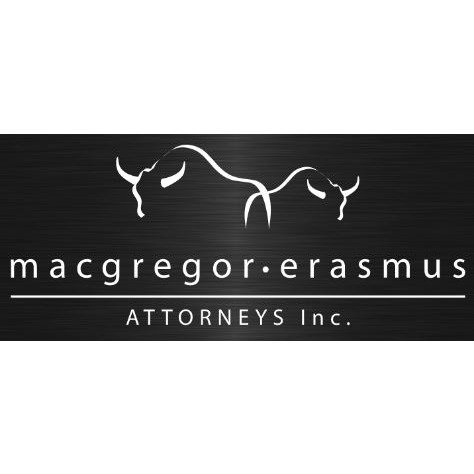Best Energy, Environment & ESG Lawyers in Cape Town
Share your needs with us, get contacted by law firms.
Free. Takes 2 min.
List of the best lawyers in Cape Town, South Africa
About Energy, Environment & ESG Law in Cape Town, South Africa
Energy, Environment & ESG (Environmental, Social, and Governance) law encompasses a broad range of legal fields that address how businesses and individuals interact with the natural environment, utilize resources, and adhere to sustainability standards. In Cape Town, this area of law is especially important due to its unique biodiversity, reliance on diverse energy sources, and the city's commitment to sustainable development. Legal professionals in this field assist in navigating regulations for environmental protection, energy usage and production, and ensuring social responsibility and good governance as required by local and international frameworks.
Why You May Need a Lawyer
There are numerous scenarios where engaging a lawyer experienced in Energy, Environment & ESG matters becomes essential in Cape Town. These include:
- Starting or expanding an energy project, such as solar, wind, or alternative fuels
- Seeking permits or licenses for developments near protected natural areas or coastal zones
- Complying with environmental impact assessment (EIA) requirements
- Dealing with environmental enforcement actions or defense in pollution or compliance cases
- Understanding or implementing ESG practices within your business
- Engaging in property developments requiring water, waste, or emissions management approvals
- Participating in government tenders for energy supply or sustainability programs
- Addressing climate change mitigation responsibilities
- Dealing with renewable energy incentives or regulatory changes
- Ensuring workplace health and safety in environmental risk areas
Local Laws Overview
Cape Town operates within the broader South African legal framework for environmental and energy regulation but also has specific municipal by-laws and policies. Some key aspects include:
- The Constitution of South Africa, which grants everyone the right to an environment that is not harmful to their health or wellbeing
- The National Environmental Management Act (NEMA), governing environmental impact assessments and sustainable resource management
- The National Energy Act and related renewable energy legislation, setting the policies for energy generation, distribution, and efficiency
- Municipal by-laws specific to waste management, water use, air quality, and noise control in Cape Town
- Requirements for Environmental Impact Assessments (EIAs) for certain categories of development projects
- Regulations relating to coastal management, due to Cape Town’s extensive coastline
- The Broad-Based Black Economic Empowerment (B-BBEE) Act, relevant for the ‘social’ component of ESG
- Recent government initiatives promoting renewable energy adoption, such as the Renewable Energy Independent Power Producer Procurement Programme (REIPPPP)
- Occupational health and safety legislation addressing environmental risks in the workplace
Frequently Asked Questions
What is ESG and why is it relevant to businesses in Cape Town?
ESG stands for Environmental, Social, and Governance. It is a set of standards measuring a business’s impact on the environment, how it manages relationships with employees and the community, and the strength of its governance. ESG compliance is increasingly important for accessing investment, securing tenders, and maintaining public trust in Cape Town.
When is an Environmental Impact Assessment (EIA) required?
An EIA is mandatory for certain listed activities that might have a significant environmental effect, such as large-scale developments, certain industrial operations, or changes in land use within sensitive areas in and around Cape Town.
What are the main environmental laws applicable in Cape Town?
Key laws include the National Environmental Management Act, national and provincial regulations on biodiversity and protected areas, the National Water Act, Air Quality Act, municipal waste and water by-laws, and the Disaster Management Act for climate-related issues.
Can I install solar panels on my property in Cape Town?
Most property owners can install solar panels but must comply with the City of Cape Town’s guidelines and obtain any required permissions, especially for grid-tied systems. Compliance ensures safety and proper integration with municipal services.
How does Cape Town address water usage and drought?
Through strict water management policies, restrictions, and public awareness campaigns the City of Cape Town maintains sustainable water usage. There are also regulations for greywater systems and borehole use, which may require registration and approval.
What are my rights if my health is affected by pollution from a neighbor’s activity?
You have the right to a safe and healthy environment. You can lodge complaints with the City’s environmental health department, and possibly seek legal remedies or orders for compliance with environmental standards.
Are there incentives for businesses to go green in Cape Town?
Several programs exist to encourage energy efficiency, renewables, and waste minimization. These may include rebates, technical assistance, and support for participating in government energy procurement programs.
How can a business ensure it is compliant with ESG regulations?
Businesses should regularly review their operations against South African ESG reporting standards, maintain transparent governance structures, comply with environmental and social legislation, and consider seeking legal advice or professional audits.
Who enforces environmental regulations in Cape Town?
Enforcement is carried out by national, provincial, and local authorities, including the Department of Environmental Affairs, Western Cape Department of Environmental Affairs and Development Planning, and the City of Cape Town’s Environmental Compliance unit.
What is the penalty for non-compliance with environmental laws?
Penalties may include fines, remediation orders, suspension of operations, or even criminal prosecution in severe cases. Continuing non-compliance can lead to harsher sanctions.
Additional Resources
If you are seeking more information or initial guidance before hiring a lawyer, the following resources may be helpful:
- City of Cape Town Environmental Management Department
- Western Cape Department of Environmental Affairs and Development Planning
- South African Department of Mineral Resources and Energy
- South African National Biodiversity Institute (SANBI)
- National Energy Regulator of South Africa (NERSA)
- Legal Aid South Africa for free or affordable legal assistance
- Environmental Management Inspectors (Green Scorpions)
- Independent Power Producers Office (for energy project queries)
- South African Human Rights Commission (for environmental rights issues)
- Local legal clinics and NGOs such as the Centre for Environmental Rights, Earthlife Africa, or WWF South Africa
Next Steps
Begin by identifying your specific issue or question in the field of Energy, Environment & ESG. Gather any documents, correspondence, or notices you have received. Research the relevant local departments or regulatory authorities that may offer guidance. If your matter involves compliance, disputes, or business operations, it is advisable to consult a lawyer experienced in Energy, Environment & ESG law in Cape Town. A qualified attorney can provide tailored advice, help you understand your obligations, assist with regulatory applications, assess potential risks, and represent you in any legal action or negotiation. Request an initial consultation to discuss your situation, and ensure your chosen legal advisor is familiar with both local and national regulations relevant to your needs.
Lawzana helps you find the best lawyers and law firms in Cape Town through a curated and pre-screened list of qualified legal professionals. Our platform offers rankings and detailed profiles of attorneys and law firms, allowing you to compare based on practice areas, including Energy, Environment & ESG, experience, and client feedback.
Each profile includes a description of the firm's areas of practice, client reviews, team members and partners, year of establishment, spoken languages, office locations, contact information, social media presence, and any published articles or resources. Most firms on our platform speak English and are experienced in both local and international legal matters.
Get a quote from top-rated law firms in Cape Town, South Africa — quickly, securely, and without unnecessary hassle.
Disclaimer:
The information provided on this page is for general informational purposes only and does not constitute legal advice. While we strive to ensure the accuracy and relevance of the content, legal information may change over time, and interpretations of the law can vary. You should always consult with a qualified legal professional for advice specific to your situation.
We disclaim all liability for actions taken or not taken based on the content of this page. If you believe any information is incorrect or outdated, please contact us, and we will review and update it where appropriate.
Browse energy, environment & esg law firms by service in Cape Town, South Africa
Cape Town, South Africa Attorneys in related practice areas.
















